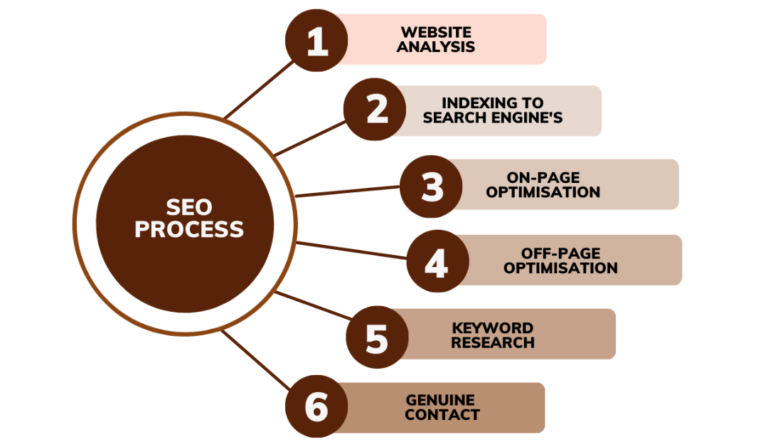Your credit score is more than just a number—it’s a financial passport that opens doors to opportunities like loans, credit cards, and even housing. In 2025, understanding your credit score and how to manage it is more important than ever. Whether you’re a first-time borrower or a seasoned financial pro, platforms like gomyfinance.com Credit Score are here to help you navigate the complexities of credit health.
In this blog, we’ll dive deep into everything you need to know about your credit score, how gomyfinance.com can assist you, and actionable tips to improve your financial standing. Let’s get started!
What Is a Credit Score? (And Why Does It Matter?)
Your credit score is a three-digit number that represents your creditworthiness. It’s calculated based on your credit history, including factors like payment history, credit utilization, and length of credit history. In the U.S., the most commonly used scoring model is the FICO Score, which ranges from 300 to 850. The higher your score, the better your chances of securing loans, credit cards, and favorable interest rates.
In 2025, your credit score isn’t just about borrowing money. It can impact your ability to rent an apartment, get a cell phone plan, or even land a job. According to recent data, 67% of employers now consider credit history during the hiring process. That’s why staying on top of your credit health is crucial.
How Does gomyfinance.com Help You Manage Your Credit Score?
gomyfinance.com is a leading platform designed to simplify credit management. Whether you’re looking to check your credit score, monitor your credit report, or get personalized tips to improve your financial health, gomyfinance.com has you covered. Here’s how it stands out in 2025:
- Free Credit Score Access: Unlike many platforms that charge fees, gomyfinance.com offers free access to your credit score and report.
- Credit Monitoring: Get real-time alerts about changes to your credit report, helping you spot errors or potential fraud.
- Personalized Recommendations: Based on your financial profile, gomyfinance.com provides tailored advice to boost your credit score.
- Educational Resources: From articles to video tutorials, the platform equips you with the knowledge to make informed financial decisions.
How Is Your Credit Score Calculated in 2025?
Understanding how your credit score is calculated can help you take control of your financial future. Here’s a breakdown of the key factors:
1. Payment History (35%)
Your payment history is the most significant factor in your credit score. Late payments, defaults, or bankruptcies can severely damage your score. On the flip side, consistently paying your bills on time can boost it.
2. Credit Utilization (30%)
This refers to the percentage of your available credit that you’re using. For example, if you have a 10,000creditlimitanda3,000 balance, your credit utilization ratio is 30%. Experts recommend keeping this ratio below 30% to maintain a healthy score.
3. Length of Credit History (15%)
The longer your credit history, the better. This factor considers the age of your oldest account, the average age of all your accounts, and how long it’s been since you used certain accounts.
4. Credit Mix (10%)
Having a diverse mix of credit accounts—like credit cards, mortgages, and auto loans—can positively impact your score. It shows lenders that you can handle different types of credit responsibly.
5. New Credit Inquiries (10%)
Every time you apply for new credit, a hard inquiry is recorded on your report. Too many inquiries in a short period can lower your score, as it may indicate financial instability.
Top Tips to Improve Your Credit Score in 2025
Improving your credit score doesn’t happen overnight, but with consistent effort, you can see significant results. Here are some actionable tips:
1. Pay Your Bills on Time
Set up automatic payments or reminders to ensure you never miss a due date. Even one late payment can hurt your score.
2. Reduce Your Credit Utilization
Aim to pay down your balances and keep your credit utilization ratio below 30%. If possible, pay off your credit card balances in full each month.
3. Check Your Credit Report Regularly
Errors on your credit report can drag down your score. Use gomyfinance.com to monitor your report and dispute any inaccuracies.
4. Avoid Opening Too Many New Accounts
While it’s tempting to apply for multiple credit cards, each application results in a hard inquiry. Focus on maintaining a few well-managed accounts instead.
5. Build a Positive Credit History
If you’re new to credit, consider starting with a secured credit card or becoming an authorized user on someone else’s account.
Common Myths About Credit Scores in 2025
There’s a lot of misinformation out there about credit scores. Let’s debunk some common myths:
Myth 1: Checking Your Credit Score Lowers It
False! Checking your own credit score is considered a soft inquiry and doesn’t affect your score.
Myth 2: Closing Old Accounts Improves Your Score
Actually, closing old accounts can shorten your credit history and increase your credit utilization ratio, both of which can lower your score.
Myth 3: You Only Have One Credit Score
In reality, you have multiple credit scores based on different scoring models and credit bureaus.
Why gomyfinance.com Is a Game-Changer for Credit Management
In 2025, gomyfinance.com continues to revolutionize how people manage their credit scores. Here’s why it’s a must-use platform:
- User-Friendly Interface: The platform is designed for ease of use, even for beginners.
- Comprehensive Tools: From credit score tracking to financial planning, it’s a one-stop shop for all things credit.
- Security: With advanced encryption and fraud detection, your data is safe and secure.
Conclusion: Take Control of Your Credit Score Today
Your credit score is a powerful tool that can shape your financial future. By understanding how it works and using resources like gomyfinance.com, you can take control of your credit health and achieve your financial goals.
Ready to get started? Visit gomyfinance.com today to check your credit score, monitor your credit report, and access personalized tips to improve your financial standing. Your future self will thank you!
FAQs About gomyfinance.com Credit Score
What is a good credit score in 2025?
A good credit score typically ranges from 670 to 739. Scores above 740 are considered excellent.
How often should I check my credit score?
It’s a good idea to check your credit score at least once every three months to monitor changes and spot errors.
Can I improve my credit score quickly?
While there’s no overnight fix, paying down balances and disputing errors can lead to noticeable improvements within a few months.
Is gomyfinance.com free to use?
Yes, gomyfinance.com offers free access to your credit score and report, along with a range of other tools.
How long does it take to build a credit score?
If you’re starting from scratch, it can take about six months of credit activity to generate a credit score.
Does gomyfinance.com offer credit repair services?
While gomyfinance.com doesn’t directly repair credit, it provides tools and resources to help you improve your credit score on your own.
Can I trust gomyfinance.com with my personal information?
Absolutely. gomyfinance.com uses advanced security measures to protect your data.
What’s the difference between a credit score and a credit report?
Your credit score is a numerical representation of your creditworthiness, while your credit report is a detailed record of your credit history.
How does credit utilization affect my score?
High credit utilization can lower your score, so it’s best to keep your balances below 30% of your available credit.
Can I use gomyfinance.com if I live outside the U.S.?
Currently, gomyfinance.com is optimized for U.S.-based users, but it may expand to other regions in the future.






Leave a Comment